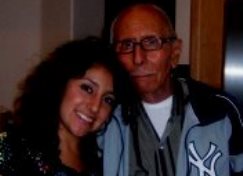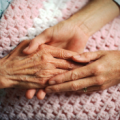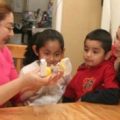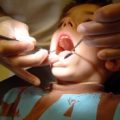
This post was written by Denise Gomez, a former member of our team.
It was Christmas Eve 2007, and I was spending the night in a hospital room, but there was no other place that I wanted to be. My mother and I set up chairs with blankets next to my grandfather’s bed as we took turns watching over him. He was restless and disoriented most nights, waking up often to try and remove his tubes.
In many situations like these, restraints are used to prevent further harm to the patient, however, our family insisted on rotating in and out at all hours to avoid the need for restraints. Due to his fever, he often woke up looking for a familiar face to put him at ease. Our shifts included translating, wheelchair rides, relaying questions to doctors, and jotting down answers in our shared notebook. Collectively, our big Latino family became patient navigators. Together, we learned how to advocate for culturally-appropriate care and the best interests of my grandfather, known as El Maestro.
Over the years, my family became very adept at navigating the health care system on his behalf, but it didn’t happen overnight. Our interactions ranged from routine appointments at the local community health center to unexpected 3-4 week stays at Denver Health. In the beginning, it was intimidating, but being a family of immigrants, we are quick to work hard, adapt, and thrive in new environments. The health care system was a new challenge, but we knew we didn’t have to tackle it alone.
One of the greatest assets of any health care setting is the dedicated and passionate health care providers and staff; we quickly realized that we all—patient, family, and clinicians—would benefit from being allies. So, we developed a system to organize ourselves and support their work. Soon, we were sharing our expertise with other families at the hospital and even assisting them in navigating the system and connecting with staff.
Now as a part of the CCMU team, I’m so glad to be continuing to seek ways to empower patients and their families in the health care system. There is growing recognition of the importance of cultural competency, patient navigation, and the role that caregivers have in our communities, and it’s exciting to be a part of that work.
A recent report published by The Latino Community Foundation outlines a new approach to how we build cultural competency, strengthen patient navigation, and support caregiving for Metro Denver’s Latino Elders. It, Too, Takes a Village resonates with my own family’s approach, which is rooted in family and culture. Its emphasis on cultural relevancy, independence, intergenerational strength, and respect for elders is a model that could benefit all who seek to care for their loved ones.
When facing life’s challenges, we can all use an ally and an advocate. Caregivers, working alongside providers and other health system staff, can ensure every patient gets the best health care for their needs. I believe that my late grandfather would be proud of how my family continues to apply the advocacy skills that we learned, but, knowing El Maestro, I bet that he would say that we have more work to do.




